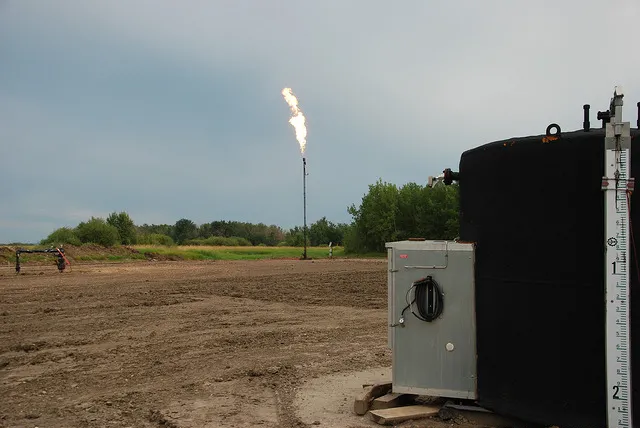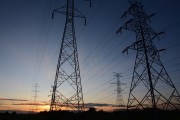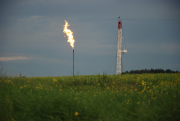Despite Prime Minister Justin Trudeau’s positive environmental rhetoric, he has been unable to shake Canada’s “all climate talk, no climate action” reputation inherited from previous prime ministers. But that is beginning to change. New rules that require oil and gas companies to reduce methane emissions could be a turning point.
Mr. Trudeau earned international praise last year when he committed to cut methane emissions from the oil and gas industry 45 per cent by 2025. It was a crucial step and a bold promise for a new prime minister. The proposed regulations unveiled recently are among the first steps the government has announced in its plan to ensure Canada meets its climate goals.
Before Mr. Trudeau can genuinely be called a climate leader, he and his government must strengthen this good proposal into more meaningful rules and regulations, and resist industry’s efforts to weaken them or delay action. A key part of this will be ensuring that any provincial methane regulations lead to reductions equal to or greater than the national standard.
Implementation of limits on emissions of methane from oil and gas operations should be a no-brainer. Methane is a powerful greenhouse gas – so potent that it is driving about one-quarter of today’s global warming. Without strong regulations, Canada, the world’s fifth-largest producer of oil and gas, is a significant part of the global methane problem. Reducing these emissions is not only good climate policy, it is smart energy policy, because it keeps the product in the pipes rather than letting a national resource go to waste.
Capturing methane from oil and gas operations helps conserve valuable fuel, creates jobs in an emerging clean-technology sector, and represents some of the quickest, most cost-effective ways of reducing greenhouse gases. Each year, enough methane is lost from Canadian oil and gas fields to supply every household in Edmonton and Calgary combined.
The proposed regulations are the only place in the national climate plan where oil and gas methane emissions are addressed, so it is crucial that we get them right. Fortunately, the solution is far simpler and cheaper than industry wants us to believe. Major leaks from equipment can be prevented with frequent inspections and repairs that can typically be done with a hand-held wrench. The regulations announced late last month are cost-effective and ensure Canada’s oil-and-gas sector stays competitive in the global market.
Oil and gas companies successfully lobbied to delay compliance, getting themselves more years of limitless pollution. And industry continues to push for higher limits and less-frequent inspections – both of which would undercut the very mission of the regulations.
To keep on track toward the 2025 target, the Trudeau government should accelerate the implementation timelines. It should insist that the rules cover all sources that have the potential to vent methane rather than exempting some oil facilities. Leak inspections should also be conducted quarterly instead of three times a year, so emissions can be found and stopped quickly.
It is also important for Mr. Trudeau and his environment minister, Catherine McKenna, to ensure that provincial methane regulations, if they are proposed, match or exceed the foundation that this federal regulation establishes. Otherwise, weaker standards in the provinces will undermine the federal proposal.
Given concessions already made, no margin is left for additional backsliding on dates or targets. By fortifying the current proposal, the federal government can assure Canadians that it is driving this policy process, not the oil and gas industry.
Canada’s work to deliver genuine climate action will continue to be tested as key elements of its climate plan are drafted and debated. On oil and gas, solutions are clear and the initial commitment from this government is encouraging. Holding the line against industry and with the provinces is a crucial opportunity for Mr. Trudeau to show that he is serious about turning Canada’s climate talk into climate action.
Ed Whittingham is executive director of the Pembina Institute. Diane Regas is executive director of the Environmental Defense Fund in the United States.








